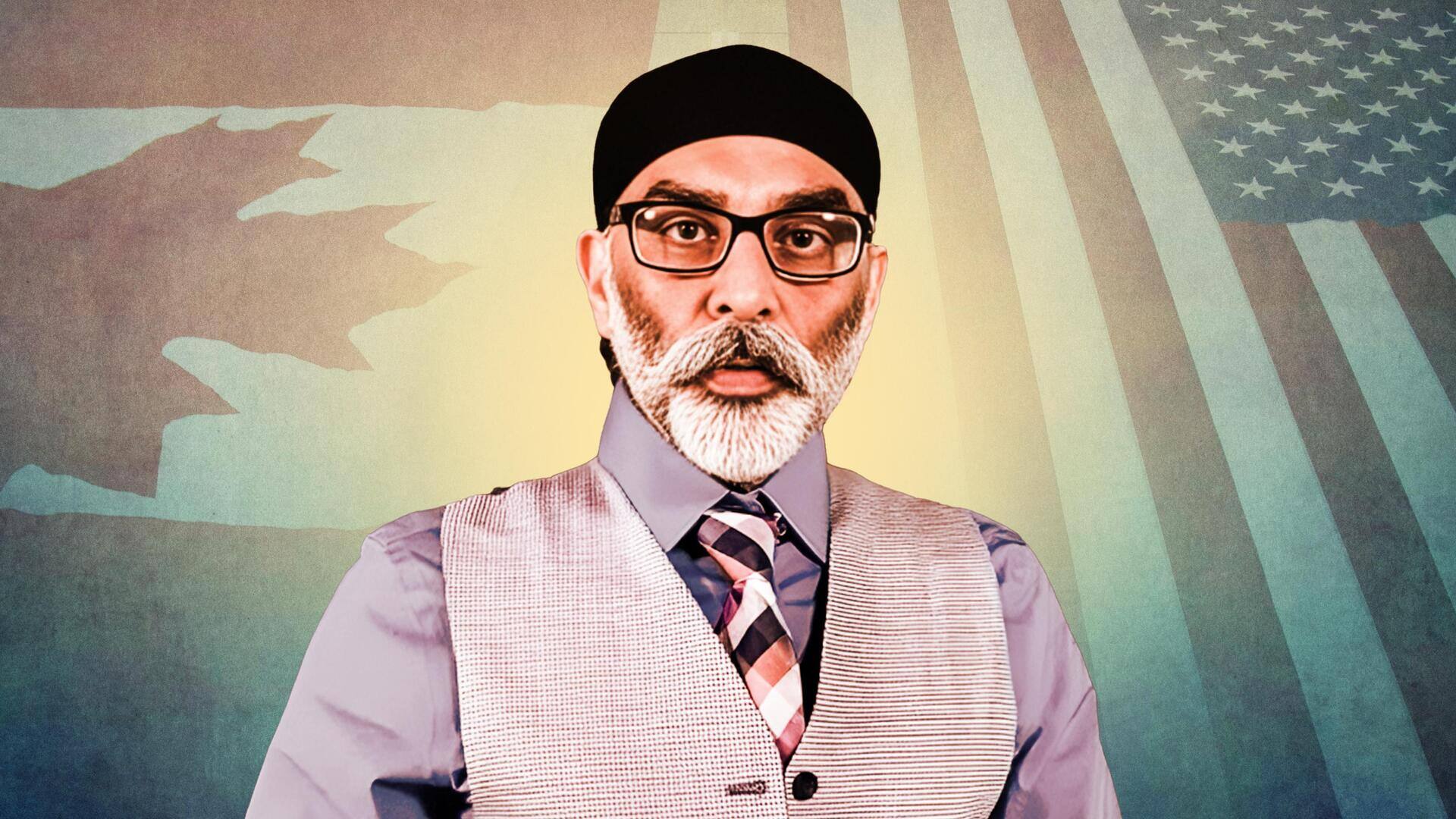
Why India's cooperating with US's Pannun investigation, not Nijjar probe
What's the story
India is cooperating with the United States (US) to investigate an alleged assassination attempt on Sikhs For Justice (SFJ) chief Gurpatwant Singh Pannun, Indian High Commissioner to Canada, Sanjay Kumar Verma said. New Delhi has previously designated the Khalistani separatist a terrorist. However, India didn't employ a similar approach to Canada's investigation into the death of Hardeep Singh Nijjar, another Khalistani terrorist, Verma said. Canadian officials reportedly didn't provide sufficient inputs that were "legally presentable" as the US did.
Context
Why does this story matter?
Per Financial Times, after thwarting an attack on Pannun on American soil, the US expressed concern about potential Indian involvement in the assassination plot. This came two months after Canada accused India of being involved in Nijjar's killing on its soil. While India rejected Canada's claims, it expressed "surprise and concern" over US inputs and reportedly agreed to investigate the issue further. Moreover, India's repeated requests to Canada to act against anti-India activities on its soil have been in vain.
Details
US shared more specific information: Verma
Verma said that the US has given India more detailed information about the alleged assassination plot than Canada has. He told CTV News, "The investigation in the case of the US, as far as I know and understand, is at a much (more) advanced stage, and therefore, I presume that there would be better information shared with India." In contrast, Canada's national security advisor didn't provide specific relevant inputs on the Nijjar case during a visit to India, he suggested.
What Next?
India-Canada relations relatively better now: Verma
Verma also called Canadian Prime Minister Justin Trudeau's claims of a "potential link" between Indian government agents and Nijjar's murder "motivated and absurd." He emphasized India was "absolutely" and "decidedly" not involved in the killing. Trudeau's accusations, made in September, caused diplomatic tensions, resulting in both nations expelling each other's diplomats and suspension of visa services. However, Verma claimed bilateral ties have relatively stabilized as India resumed e-visa services for Canadians last week after a two-month pause.
Insights
US inputs regarding nexus between criminals: Verma
Furthermore, Verma claimed the information shared by the US with India involves a connection between gangsters, drug dealers, terrorists, and gun runners in the US. He also said it is believed that some Indian connections are involved, but these are not government connections. Meanwhile, the envoy acknowledged that "emotional factors" played a role in India's decision to expel Canadian diplomats. He added the move to revoke diplomatic immunities for dozens of other Canadian diplomats was aimed at achieving diplomatic parity.